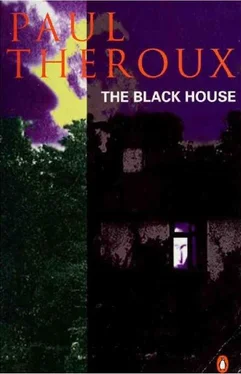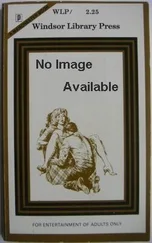Paul Theroux - The Black House
Здесь есть возможность читать онлайн «Paul Theroux - The Black House» весь текст электронной книги совершенно бесплатно (целиком полную версию без сокращений). В некоторых случаях можно слушать аудио, скачать через торрент в формате fb2 и присутствует краткое содержание. Год выпуска: 1996, Издательство: Penguin Books, Жанр: Современная проза, на английском языке. Описание произведения, (предисловие) а так же отзывы посетителей доступны на портале библиотеки ЛибКат.
- Название:The Black House
- Автор:
- Издательство:Penguin Books
- Жанр:
- Год:1996
- ISBN:нет данных
- Рейтинг книги:4 / 5. Голосов: 1
-
Избранное:Добавить в избранное
- Отзывы:
-
Ваша оценка:
- 80
- 1
- 2
- 3
- 4
- 5
The Black House: краткое содержание, описание и аннотация
Предлагаем к чтению аннотацию, описание, краткое содержание или предисловие (зависит от того, что написал сам автор книги «The Black House»). Если вы не нашли необходимую информацию о книге — напишите в комментариях, мы постараемся отыскать её.
The Black House — читать онлайн бесплатно полную книгу (весь текст) целиком
Ниже представлен текст книги, разбитый по страницам. Система сохранения места последней прочитанной страницы, позволяет с удобством читать онлайн бесплатно книгу «The Black House», без необходимости каждый раз заново искать на чём Вы остановились. Поставьте закладку, и сможете в любой момент перейти на страницу, на которой закончили чтение.
Интервал:
Закладка:
“Mr. Lennit is in charge of our visual aids,” said Crawshaw.
“Not trained for it, or anything like that,” said Lennit. “I used to be with British Rail, on the accounts side, in London. For years.”
“Perhaps I can give you a hand,” said Munday.
“No, I’ve done this lots of times before,” said Lennit. He wouldn’t let himself be helped. He said, “Very fiddly, these things. You just have to know the right combination.” He looped the screen once again onto the upright and nudged the tripod into place with his foot. It crashed again. “Oh, God,” he muttered, and his grip on the apparatus became strangulatory.
Crawshaw turned to the audience: “While Mr. Lennit’s putting the screen into shape, I’d like to make a few announcements. First, Mrs. Crawshaw asked me to thank all of you who kindly brought fresh flowers for the memorial service last Sunday. Those of you who spent Saturday afternoon polishing the brasses deserve a special vote of thanks. The Christmas supper is scheduled for the twenty-second, and may I just say a word about our charity drive for the less fortunate in Four Ashes? It’s not too early to start thinking about setting tins and warm clothes aside—”
Emma, in the front row, was listening to the vicar. Munday tried to catch her eye—he wanted her to wink at him; she turned and smiled slightly and went back to the vicar. She looked calm, but after the walk that evening she had stopped in the courtyard of the house and said, “I don’t want to go in.” Munday had entered first. He called to her; there was nothing. Behind her now, making her seem almost girlish in her Indian silk scarf, the rows of elderly listeners hunched in their dark coats received the vicar’s news without reacting. Then Munday realized that they were not looking at the vicar, but rather at Mr. Lennit who at the back of the stage was stretching the screen into position for the fourth time.
Munday, scowling in the heat, was struck by their certain age, which he took to be around seventy, and by the uniformity of their appearance. They looked so similar, they shared so many features: their faces were small, bony, skull-like, some of the women’s faces looked dusted with flour, and yet none gave the impression of being sickly. Their postures were the same; they sat on the folding chairs, their hands clutched in their laps, bent slightly forward, as if straining to hear, or perhaps to get a better view of Mr. Lennit. Many of the men wore lapel pins, some two or three, and the women small corsages, sprigs of winter flowers on their coats. It was a vision for Munday of old age crowded in a hall, like a council convened by the geriatrics in a village convinced of their own doom. There were such villages on remote African hillsides, from which all the young people had fled in a time of famine or drought, leaving the aged ones to resist, huddled in broken huts. Munday had seen them crouched in shadows, facing fields parching in a killing sun.
“—I think,” said the vicar, glancing behind him, “that Mr. Lennit has succeeded in putting up his awfully complicated cinema screen. Before we begin I must ask you to avoid stepping on the cord to the slide projector. We don’t want a repetition of the Hardy talk!”
A mirthful hum vibrated in the audience, and chairs clanked as people shifted in their seats.
The vicar said to Munday, “Someone plunged us into darkness that night. Gave some of the good ladies here quite a shock.”
Munday nodded and said, “Rather.”
“This evening,” said the vicar, raising his voice, “we are privileged to have with us a man who has spent a good part of his life in some very sticky places. Africa has always had a strange fascination for the English. We explored its jungles, we fought there— many Englishmen still lie buried there—we cplonized and brought light to that dark continent. A few of you here tonight have yourselves been to Africa and can claim some credit for these accomplishments. Today, Her Majesty no longer rules over Africa, and the territories that flew the Union Jack now have their own flags of various colors. From what we read in the papers they seem terribly confusing—”
The introduction went on for several more minutes and continued to embarrass Munday, and when the vicar said, “I give you—Doctor Munday,” he stepped forward to the dry clapping and realized how inappropriate the opening remarks he had prepared were, how scholarly and ill-suited to the mood of this provincial place. So he began by saying, “The vicar called it sticky. It’s only that in the literal sense, never very dangerous. In fact I should say it’s a good deal safer than London!”
They laughed at this, and he went on, encouraged by their amusement, trying to find a way into the talk he had prepared. “They say Africa gets into one’s blood. It’s probably truer to say it gets under one’s skin!” This time he paused for the laughter, but it was slighter than before, and scattered, and he quickly resumed, “Unless you’re a chap like me who rather enjoys poking his nose in all sorts of out-of-the-way places. It’s a queer kind of community, an African village, but in many ways no different from your own village. The social organization is quite similar, there are meeting places like this church hall, and shops, and village elders to whom, like the vicar here, people look for counsel. So when you think of an African village, don’t think of a great mass of gibbering black people with bones in their noses, shaking spears and beating on tom-toms”—here there was some laughter, but Munday pressed on without acknowledging it— “think of yourselves.”
And then he said, “You understand in Four Ashes what it’s like to be a bit off the map, and tonight I’m going to talk to you about another remote people—” He sensed a slackening in the audience’s attention right away, an adjustment to heaviness in them he tried to shift with his voice; fighting for their .eyes made his tone preachy and somewhat strident. Emma had advised him to pick one person and speak to him. He did this: the man was in the third row, and was distinguished by a fine tweed coat, lighter than all the others. Munday continued speaking; the man put his chin in his hand reflectively; his head tilted to the side and the hand seemed to tip the head onto his shoulder. Asleep, he seemed especially aged. Munday searched the hall for another face.
“It’s a law of nature,” he was saying, “that once a group of people has been cut off from the world they begin to change. Their direction alters—though they have no sense of having turned. They have nothing, no one, to measure themselves by, except a distant feeble memory of the way things were once done. You must bear in mind that certain activities put us in touch with other people—trade, selling our skills and goods, travel, reading, even warfare helps us to come to an understanding of the world outside the village. But where there is little saleable skill, a subsistence economy, a reluctance to travel, and where people are entirely self-sufficient, they withdraw to a shadowy interior world. This inspires certain fears —irrational fear, you might say, is a penalty of that isolation. Who can verify it or tell you it doesn’t matter? Who can witness this decline? The remote people begin to act in a manner that looks very strange indeed to an outsider. Their sense of time, for example, is slowed down. The sameness of the days makes them easy to forget and so history goes unwitnessed. It’s a kind of sleep. There is ‘little innovation because really there is no need for it. What is not understood—and this can be as simple and casual as a tree falling across the road in a storm—is called magic. And this happens in more places than the witch-ridden society of semi-pygmies at the latter end of the world.
Читать дальшеИнтервал:
Закладка:
Похожие книги на «The Black House»
Представляем Вашему вниманию похожие книги на «The Black House» списком для выбора. Мы отобрали схожую по названию и смыслу литературу в надежде предоставить читателям больше вариантов отыскать новые, интересные, ещё непрочитанные произведения.
Обсуждение, отзывы о книге «The Black House» и просто собственные мнения читателей. Оставьте ваши комментарии, напишите, что Вы думаете о произведении, его смысле или главных героях. Укажите что конкретно понравилось, а что нет, и почему Вы так считаете.












